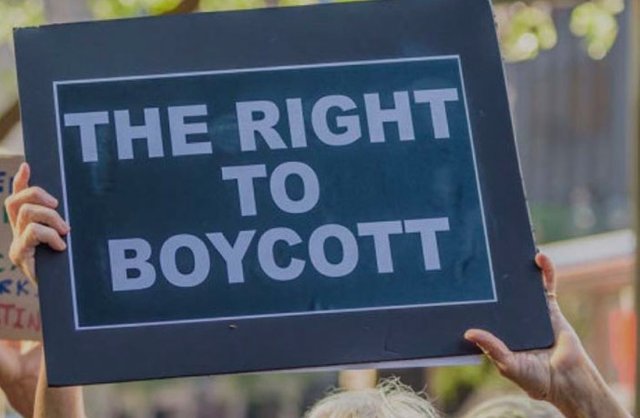The United States House of Representatives overwhelmingly approved a resolution on Tuesday opposing boycotts of Israel.
House Resolution 246, sponsored by Rep. Bradley Schneider (D-IL), opposes boycott, divestment and sanctions (BDS) initiatives targeting Israel, “including efforts to target United States companies that are engaged in commercial activities that are legal under United States law, and all efforts to delegitimize the State of Israel.”
398 American lawmakers voted in favor of the resolution, 17 voted against and five abstained.
The American Israel Public Affairs Committee (AIPAC) welcomed the approval of the resolution, tweeting that “92% of the House voted for H.Res.246 to condemn the BDS campaign as anti-Israel, anti-peace and damaging to U.S. interests. This overwhelming vote is representative of the broad, bipartisan support in Congress for Israel and the U.S.-Israel relationship.”
AIPAC wasn’t alone in its support for the bill. In recent years, American-based pro-Israel organizations have focused their energies on combatting BDS campaigns, largely through political lobbying that frames BDS as a form of anti-Semitic hate speech.
But what the pro-Israel community doesn’t seem to grasp is that even when successful, top-down anti-BDS legislation is actually counterproductive.
The real threat posed by BDS isn’t that it endangers the State of Israel. The only way that would even be true is if Israel actually were the “settler colony” BDS advocates claim it to be. Boycott campaigns and similar tactics are generally effective when used against western societies that place the material wellbeing of the individual at the center. For such societies, the sense of isolation and financial loss caused by boycotts, divestments and sanctions tend to weaken the resolve of the targeted nation and create sufficient pressures to ultimately alter national policies.
But such methods have a very different impact on more eastern societies that prioritize the interests of the collective and actually become more hardline and cohesive in the face of isolating external pressures.
The State of Israel is unique in that it possesses within it both western and eastern societies, often in conflict with one another.
The Liberal Zionist camp, erroneously referred to as “the left” in Israeli society, is in reality a westernized ruling class largely disconnected from Jewish identity while desperate for a sense of connection to the outside world.
What’s called “the right” generally refers to the more tribalist and traditionalist Israeli majority that possesses a much deeper sense of Jewish identity and national consciousness.
BDS campaigns simultaneously weaken the Liberal Zionist camp while strengthening Israel’s national camp, accelerating a process of social and political change already taking place due to Israeli demographic trends. When understood within the context of the State of Israel’s internal cultural conflicts, BDS actually strengthens the forces of Jewish nationalism over those of western liberalism.
As a method of struggle, BDS is based less on what Israel actually is and more on the colonial fantasy of Israel as it’s understood in the Palestinian solidarity narrative. The refusal to engage Israel as it exists (or at least as the overwhelming majority of Israelis self-identify) has led to the adoption of anti-Israel campaigns that ironically strengthen the Jewish state.
The actual threat BDS poses has nothing to do with Israel’s security or economy but rather the toxic rhetoric often accompanying it. BDS initiatives often create political climates that demonize Israel, socially isolate pro-Israel Jews and malign the notion of Jewish national identity. While many BDS activists might genuinely seek to express their solidarity with Palestinians and combat injustice, their activism can sometimes draw from classic anti-Semitic tropes.
Anti-BDS legislation like House Resolution 246 reinforces these tropes by creating an image of powerful Jews using political clout to silence criticism of Israeli policies.
While pro-Israel Jewish college students might genuinely experience BDS as hate speech, most of their peers only hear criticism of a state’s actions. They don’t recognize anti-BDS Jews as resisting anti-Semitism but see Jewish organizations wielding influence to punish activists attempting to speak truth to power – an image that causes many Jewish students to avoid exploring their own connections to Israel due to a fear of being caught on the wrong side of a polarizing issue.
So in addition to being superfluous, anti-BDS legislation actually exacerbates the real dangers posed by BDS – not to the State of Israel but to the national consciousness of young Diaspora Jews.
A more effective means of combatting BDS would be to initiate alternative boycotts targeting American companies that profit from our conflict. In essence, alternative boycotts would still pressure many of the same US businesses to change their practices in the Middle East. But rather than forcing students to choose sides in a fight between Israelis and Palestinians, alternative boycotts would show that both peoples are actually victims of foreign actors who reap material benefit from two Semitic peoples killing each other.





